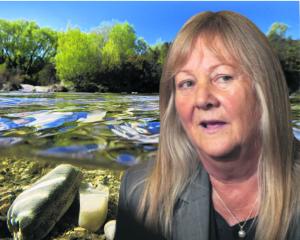Further shifts in attitude need to occur if water quality is to remain in ''good health'' in Central Otago, the Otago Regional Council says.
An increasing shift to intensive farming in Central Otago and the continued ''production-profit focus'' of the agriculture industry meant changes were needed to maintain and improve water quality in the region, a land resource report to a council committee said.
The 16 dairy farms in Central Otago had the highest percentage of significant pollution incidents, 6%, of any district in the region during the past dairy season, council inspections found.
The work of the council's land resource team in the past two years had included helping the community understand the proposed plan change 6A (water quality) which had recently been appealed to the Environment Court.
When water quality problems had been identified by the council's science team, the land resources team had held meetings and field days to encourage farmers to look at ways to improve water quality.
''Significant changes in land use practices on the ground have occurred.''
In the past year, it had focused on catchment programmes in Owaka, Tuakitoto, Tokomairiro, Lower Taieri, the lakes district and North Otago.
It had also built up industry partnerships with Fonterra, DairyNZ, Federated Farmers, Ballance and Ravensdown.
Following the release of 6A, it had also held meetings with bankers and stock agents.
However, there was further farm development and intensification occurring across Otago, including Central Otago.
Staff had been involved with pre-dairy conversion assessments on six farms including three in the Manuherikia catchment. The others were in North Otago and South Otago.
Cr Michael Deaker said given the challenge of 6A implementation, the land resources team was the ''critical face'' of the council.
It was good to know the team had the expertise and relationships, the ''mana'' to do that, he said.
Cr David Shepherd said in his 40 years in farming there had been a ''huge'' shift in attitude with farmers improving their environmental footprint.
''We don't want to be seen as being too overly critical.''
It was possible to be profit-driven but also be aware of the environment, he said.
Committee member Dr Terry Broad said the council was supportive of farmers and it was ''certainly doing more than required on farms'' which would enable farmers to respond more quickly to the new standards.












